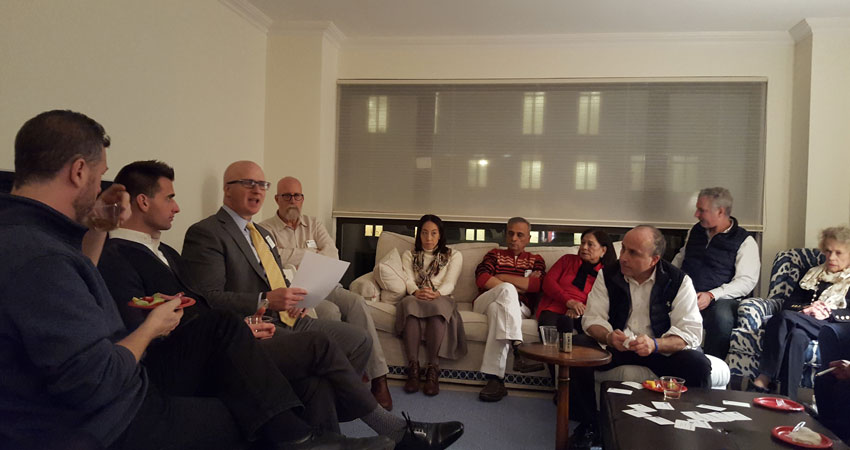Salon with Aaron Renn
Christian Union New York hosted a salon titled, “The Fall of the Household” on December 4, 2018. Aaron Renn discussed the challenges posed to the family and the church by the changing nature and function of the household.

Today’s average New Yorker would have a very difficult time explaining what his typical day looks like to the apostle Paul. From smartphones to federal republicanism, it’s safe to say that the way of life in today’s society doesn’t look much like it did in Biblical times.
One fundamental building block of society that has changed drastically through the millennia is the household. What did the typical household look like during the writing of Paul’s letters? What role did it play in society? How has this role changed? And how ought the church to respond? These were the questions raised and discussed at the salon.
“The vast majority of human history was pre-industrial,” Renn explained, putting the current rate of societal change in perspective. He went on to explain that, during this pre-industrial era, the household was the center of life, and not just socially. The household was the economic hub and the main political actor; it also played the role of the education system, the police department, and social security. Typically all work was done from home, and while the system was patriarchal and men and women played different roles, both sexes were involved in production, and both were vital to the functioning of the family business.
Come the industrial revolution, men left the home for the factory, and, with the center of production moving outside of the household, women soon lost their productive role in society. As Renn states, women “went from making cloth to buying clothes.” As the economy expanded rapidly, so too did the state. Soon, it took over the tasks of schooling, policing, and providing social security. The importance of the household shrunk proportionally, becoming about essentially just two things: “companionship, and consumption.”
As society moved into the post-industrial era, women also increasingly left the home to enter the workforce, and traditionally informal work began to be professionalized.
Renn’s intent was to inform his audience of just how drastically the household has changed since the writing of the Biblical texts we read, and the need to recognize this if we wish to fully understand how to live out the teachings they contain. We are going to have a difficult time following the instructions written to the Ephesian church if we don’t recognize how fundamentally the household has changed.
Renn’s salon raised many questions without seeking to provide many answers, but from the discussion that followed, it was clear that he succeeded in getting the attendees thinking.
About the Speaker
Aaron M. Renn is the Publisher of the The Masculinist, a monthly email newsletter on the intersection of Christianity and masculinity. He’s also a writer and researcher on urban policy, whose work has been featured in the New York Times, the Guardian, and the Washington Post.
About Salons
Christian Union salons are fashioned after the features that made earlier European salons famous – an inspiring venue for the exchange of ideas. Salons provide an intimate gathering for Christian leaders to develop strong ties, discussing topics that will strengthen both the intellectual and supernatural dimensions of your Christian faith. Expert speakers will go in-depth, and participants will have the opportunity to interact with the guest presenter as well as one another.
Get Involved
If you have questions or would like to get involved, please email cunewyork@christianunion.org.



